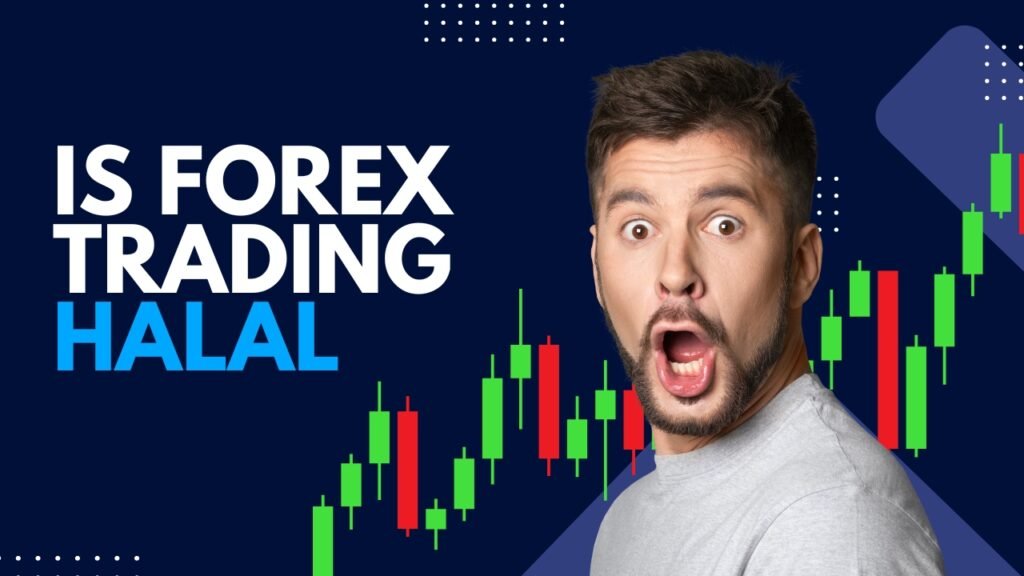Is Forex Trading Halal : Lets Explore Is Trading Halal in Islam?
Is Forex trading halal in Islam? Discover what makes Forex halal, how Islamic accounts work, and how Muslim traders can trade ethically and confidently.
Table of Contents
Forex trading is a vast financial market, with over $7.5 trillion traded daily. Trading currencies online is now a popular choice for many people, including Muslims.
However, before you begin, a key question is usually asked:
Is Forex Trading Halal in Islamic Law?
Certain ethical principles guide all financial decisions in Islamic finance. These are Riba (interest), Gharar (excessive uncertainty), and Maysir (gambling). This is the reason why some Muslims are uncertain about whether currency trading is permitted in Islam.
Beirman Capital is a place where you will get appropriate guidance on Forex trading, account management, and learn how trading can be acceptable in Islam. You can read more on our blogs.
The solution is not always easy to find. The method of trading and the type of account chosen are important factors. Some types of trading are allowed under Shariah law if they follow its guidelines.
We will discuss in this blog whether Forex currency trading is allowed by Islamic law, what Islamic scholars believe, and how Islamic trading accounts function. We aim to support Muslim traders in making smart and confident choices.
Forex Trading Explained in Simple Terms
What Is Forex Trading?
Forex, short for foreign exchange, is the process of buying and selling currencies. It’s done in pairs, for example, EUR/USD means trading the euro against the US dollar. Traders aim to earn a profit by predicting whether a currency will go up or down in value.
The Forex market is open 24 hours a day, five days a week, and it is the largest financial market in the world.
Many people are attracted to Forex because of its flexibility, low entry cost, and potential to earn points through short or long-term trading.
How Does Forex Trading Work?
In simple terms, Forex trading involves speculating on currency price movements. For example, if you believe the euro will become stronger than the dollar, you buy euros and sell dollars. If your prediction is correct, you make a profit.
Most forex trading today is done online through platforms offered by brokers. These platforms provide tools, charts, and options to trade with or without leverage.
3 Islamic Finance Rules That Affect Forex Trading
To determine if forex trading is halal, we must check these key Islamic finance rules:
No Riba (Interest) – The Biggest Concern
- Standard forex brokers charge swap fees (overnight interest) when you hold a trade open for more than a day.
- Since Islam strictly prohibits interest (riba), this makes most regular forex accounts haram.
- Solution? Islamic (swap-free) accounts eliminate these interest charges.
No Gharar (Uncertainty or Gambling-Like Risk)
- Forex trading can become Haram if it resembles gambling, like taking extremely high leverage trades (e.g., 1:500) or blindly guessing price movements.
- Islam encourages fair, transparent transactions, not reckless speculation.
No Involvement in Haram Industries
- Forex itself is just currency exchange, but you must ensure your broker doesn’t deal with prohibited industries (e.g., alcohol, gambling, or unethical businesses).

Islamic Accounts: A Shariah-Friendly Alternative to Standard Forex Accounts
Most brokers include swap fees in their accounts, which means regular trading accounts are not allowed under Islamic finance. Still, Islamic accounts that do not charge interest are available, and they are designed to allow halal profit opportunities.
Key Takeaway for Muslim Traders
If you follow these conditions, forex trading can be considered halal.
✔ You won’t be charged interest (only swap-free accounts are available)
✔ Do not use too much leverage or act like you are gambling
✔ No business activities that are forbidden
The Islamic Perspective on Modern Forex Trading
Muslim traders face special difficulties in the global currency market. Forex trading can be allowed in Islam if it follows the principles set by God. We can look at this issue from three important perspectives:
1. The Nature of Currency Exchange in Islam
Traditional Islamic finance considers currency exchange (sarf) to be allowed if the following conditions are met:
- All transactions are completed immediately, not at a later date.
- People exchange physical money by hand.
- The rates are set openly and honestly.
Electronic trading in the modern era adds more challenges to these conditions.
2. Core Compliance Requirements
For forex trading to be halal, it must:
- Eliminate all interest-based elements
- Maintain complete transparency
- Avoid excessive uncertainty
- Use ethical trading practices
- Prohibit gambling-like behaviour
3. The Brokerage Factor
Some forex platforms are not Sharia-compliant:
- Most brokers in the industry rely on interest-based systems.
- Islamic accounts are required to:
- Get rid of all swap fees.
- Be careful not to fall for rollover interest schemes.
- Make sure the settlement is made right away.
- Provide reasonable limits for using leverage.
4. Practical Considerations
Muslim traders ought to consider:
- The assets that are being traded
- The amount of time it takes to settle
- The broker’s compliance certification
- The methods used for trading
What Islamic Scholars Say About Forex Trading
Forex trading isn’t a simple “halal or haram” question, scholars have different opinions based on how trading is done. Let’s break it down in a way that’s easy to understand.
Why Some Scholars Say Forex is Haram
A few strict scholars believe all forex trading is haram because:
- Interest (Riba) is involved – Most brokers charge swap fees on overnight trades.
- Too much uncertainty (Gharar) – Currency prices move fast, making it feel like gambling.
- No real asset exchange – Digital trading doesn’t follow the Islamic “hand to hand” rule for currency exchange.
Why Many Scholars Allow It (With Conditions)
Most modern scholars say forex can be halal if you follow these rules:
- Use a swap-free (Islamic account) with no interest charges.
- Choose a trade spot forex over futures or delayed settlements.
- Avoid using high leverage. Try not to use ratios like 1:500 (this will help you avoid big risks).
- Use real analysis instead of guessing to avoid gambling-like actions.
Key Fatwas & Organisations That Approve Forex (With Rules)
- AAOIFI (Islamic Finance Standard Board) – Forex is allowed if it does not involve riba or gharar.
- Experts from Al-Azhar University – Allow trading in foreign exchange using Islamic accounts.
- Malaysian & Gulf Scholars – Most are in favour if the conditions are met.
How to Trade Forex the Halal Way
Are you interested in trading forex in a halal way? Here’s how:
- Sign up for an Islamic Account – Pick a broker that does not charge interest on your trades.
- Do not let your trades stay open past the daily rollover to avoid being charged hidden riba.
- Use a low amount of leverage – 1:10 or less to avoid taking on too much risk.
- Stick to Spot Forex Trading – Avoid futures and CFDs since they can cause delays or interest.
- Use charts and news instead of guessing when you trade, so you don’t fall into maysir (gambling).
- Verify that the broker is Sharia-compliant to avoid paying fees on fake Islamic accounts.
Final Verdict
You can trade in the forex market in a halal way if you follow Islamic rules. The main thing is to stay away from interest, too much uncertainty, and gambling-like actions. When trading halal, use swap-free Islamic accounts that do not charge overnight interest, limit your leverage to 1:10 or less, and make your decisions by analysing the market instead of guessing. Many experts agree that forex trading is acceptable when these conditions are in place.
On the other hand, accounts that charge swap fees or involve high-risk trading are not allowed in Islam. The decision depends on your broker and trading style, as having an Islamic account and following a disciplined approach allows Muslims to take part in forex markets in line with Sharia law.
If you are not sure about certain trading practices, always ask an expert in Islamic finance. Beirman Capital will assist you in learning how to open an Islamic account, give you all the information about it, and guide you personally. You can contact us in case of need.
FAQs
Is forex trading halal in Islam?
In Islam, forex trading is allowed when you use swap-free Islamic accounts, avoid interest, trade with low leverage, and follow Sharia rules. Always make sure the broker is following the rules.
Is it haram to trade Forex?
Forex trading is not allowed if it includes interest, too much risk, or gambling-like behaviour. Trading in a way that follows Islamic rules and accounts is considered halal.
Is forex trading gambling?
If you trade Forex correctly, using real market analysis and avoiding high leverage, it is considered halal. However, making trades without proper knowledge can be similar to gambling, which is forbidden in Islam.
Is forex trading halal or haram?
Forex trading may be halal when it is interest-free (Riba), speculation-free (Maysir) and with limited uncertainty (Gharar). Islamic forex accounts, which are governed by Shariah law, are used by many Muslims.
How to Start Halal Trading using an Islamic Forex Account?
To remain within the Islamic finance principle, open an Islamic forex account with a broker who provides such accounts, ensure that the account is Shariah compliant, and avoid interest-based trades or trades that are not halal as per the trading rules.
Does Forex Trading Align with Sharia Principles of Investing?
Forex trading can be Sharia compliant when it does not involve interest (Riba), speculation (Maysir) and uncertainty (Gharar). Trading with Islamic forex accounts assists them to adhere to such rules.
Get Complete Forex Trading Assistance



